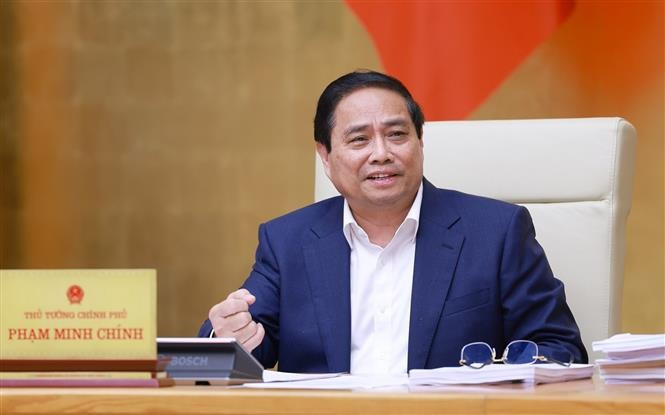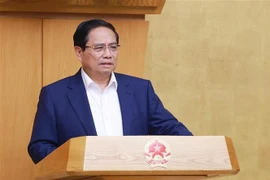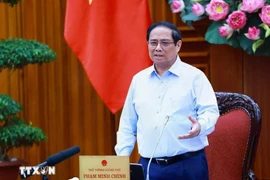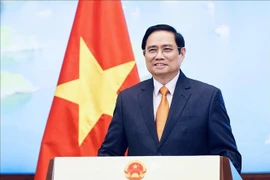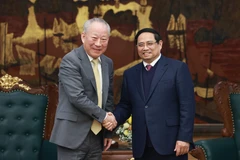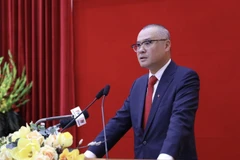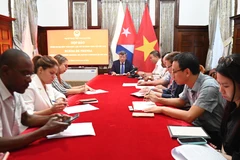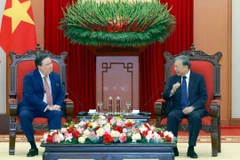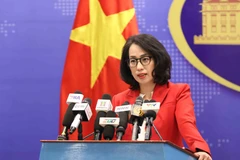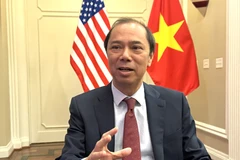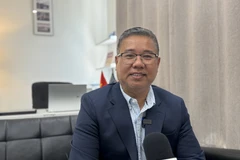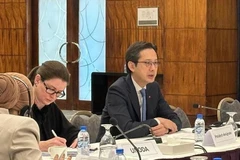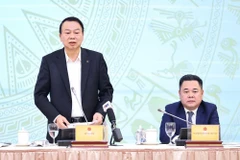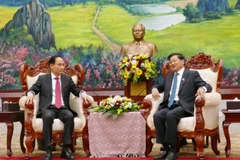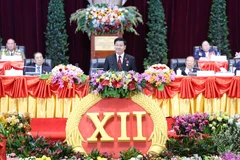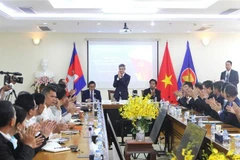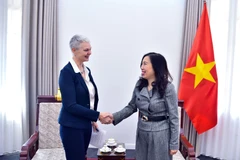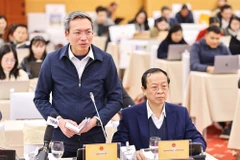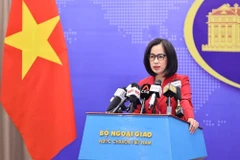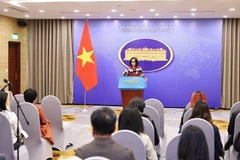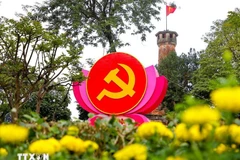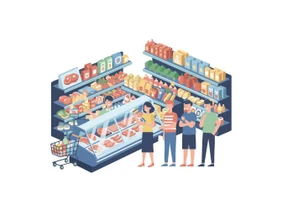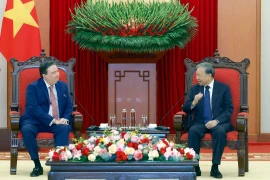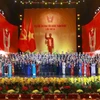Hanoi (VNA) – Prime Minister Pham Minh Chinh has emphasised the need for stronger decentralisation, delegation of power and effective resources allocation, coupled with mechanisms for oversight, and a firm reduction in unnecessary administrative procedures while building laws.
He chaired the Government’s law-building session in Hanoi on May 22, during which participants proposed solutions to emerging issues in the drafting of decrees on decentralisation and delegation of authority linked to the organisation of the two-level local administration model.
They also considered two draft laws and four legislative proposals - the law on enforcement of temporary detention, custody, and travel restrictions; the amended law on enforcement of criminal judgements; the amended law on thrift practice and wastefulness combat; the amended law on judicial assessment; the amended law on food safety; and the law on population.
Discussions focused on improvements to detention and sentence enforcement, forensic assessment, thrift practices, food safety, and population policy, aiming to enhance state management and ensure public wellbeing.
Concluding the session, PM Chinh directed drafting bodies to incorporate feedback from ministers, experts, scientists, citizens, and businesses to improve legislative quality.
Discussing the law on enforcement of temporary detention, custody, and travel restrictions, the PM supported a regulation regarding prison labour as a rehabilitation tool, stressing flexible financial procedures with proper authorisation. He called for separate facilities for mentally ill inmates.
On forensic assessment, he endorsed the Ministry of Public Security’s proposals and recommended continued involvement of capable institutions and social engagement. He emphasised forensic assessment should be treated as a regulated profession with appropriate policies.
Proposing May 31 as a day to promote thrift and anti-wastefulness, the PM urged further decentralisation to eliminate waste.
Regarding food safety, PM Chinh underlined its direct link to public health and tasked the Ministry of Health with leading coordination efforts. He called for urgent revision of Decree 15 to fix gaps, prevent unsafe food, and safeguard lives.
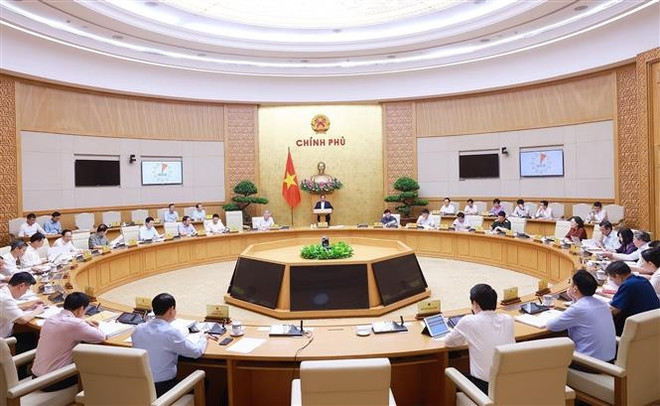
On the population law, he asked for policy shifts from population control to development, ensuring both quantity and quality, encouraging childbirth, and improving physical and mental capacities of the Vietnamese people.
Ministers and agency heads were instructed to prioritise legislative reform, directly lead law-drafting efforts, and coordinate with the National Assembly to raise the quality of legal documents.
PM Chinh underlined that the building and completion of laws must align with Party policies, including the newly issued “strategic quartet”. The Prime Minister reaffirmed the "seven clarities" in law-making - how Party policies are implemented; what issues laws have yet to address or have regulated ineffectively; what procedures can be simplified; how decentralisation is handled; and which contentious matters need further review.
It must shift from passive control to proactive facilitation for development and service, he said, adding that laws should serve as frameworks. Well-established practices should be codified, while more dynamic economic issues should be addressed through decrees and guidelines.
Laws should be anticipatory and regularly reviewed, using single laws to amend multiple others where appropriate, to remain responsive to real-world needs.
PM Chinh concluded by instructing ministries and agencies to continue prioritising institutional reform, actively seek feedback from all stakeholders, and ensure quality in preparing legislative reports for the 9th National Assembly session. He also urged readiness for presenting new bills at the 10th session, ensuring timeliness and quality./.
